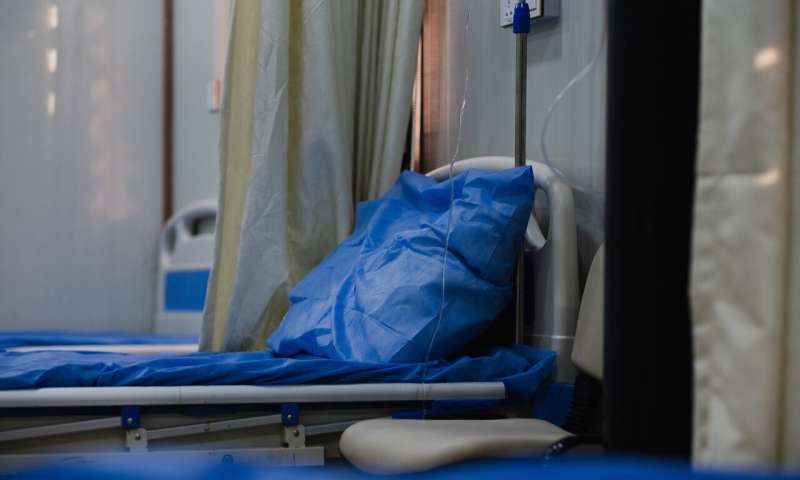
A new study shows that providing a non-acute care space after hospital discharge for patients with COVID-19 who are experiencing homelessness helped reduce hospitalizations and keep inpatient beds available for those requiring acute care. Published in JAMA Network Open and led by researchers at Boston Medical Center’s (BMC) Grayken Center for Addiction, the study demonstrates the importance of developing innovative approaches to tackle issues facing people experiencing homelessness, including their inability to isolate, in order to mitigate additional COVID-19 exposure while simultaneously alleviating the strain on hospitals during surge situations.
Approximately nine percent of BMC patients experience homelessness, who also as a group have higher rates of mental health and substance use disorders than the general population. When diagnosed with COVID-19, people are told to isolate for a period of seven to 14 days in order to minimize exposure to others. However, for individuals experiencing homelessness and who live in a shelter or in a congregate setting, isolation is rarely an option.
“Early on in the pandemic, we recognized that we needed to be proactive in addressing the risk of COVID-19 exposure and spread among people experiencing homelessness. We also knew we had to act quickly as we saw rates of COVID-19 skyrocketing in Boston and globally,” said Joshua Barocas, MD, an infectious disease physician at BMC and the study’s corresponding author. In collaboration with the Commonwealth of Massachusetts, BMC established and opened the COVID Recuperation Unit (CRU) in a facility close to the hospital in early April 2020. The unit treated patients discharged from BMC who did not require acute care, providing a place to safely isolate and recover from COVID-19 in a medically supervised setting. In addition, staff on site at the CRU were also trained to help patients manage their substance use disorders, recognize medical emergencies, and address mental health concerns.
The researchers analyzed data from BMC’s daily COVID-19 hospitalization census between March 1 and June 4, 2020. Between that time period, 8,864 patients were admitted to BMC (13.2 percent were people experiencing homelessness) and 226 patients were admitted to the CRU (84 percent were people experiencing homelessness). Among patients experiencing homelessness diagnosed with COVID-19, there was a 28 percent reduction in hospitalizations at BMC after the CRU opened.
Source: Read Full Article
